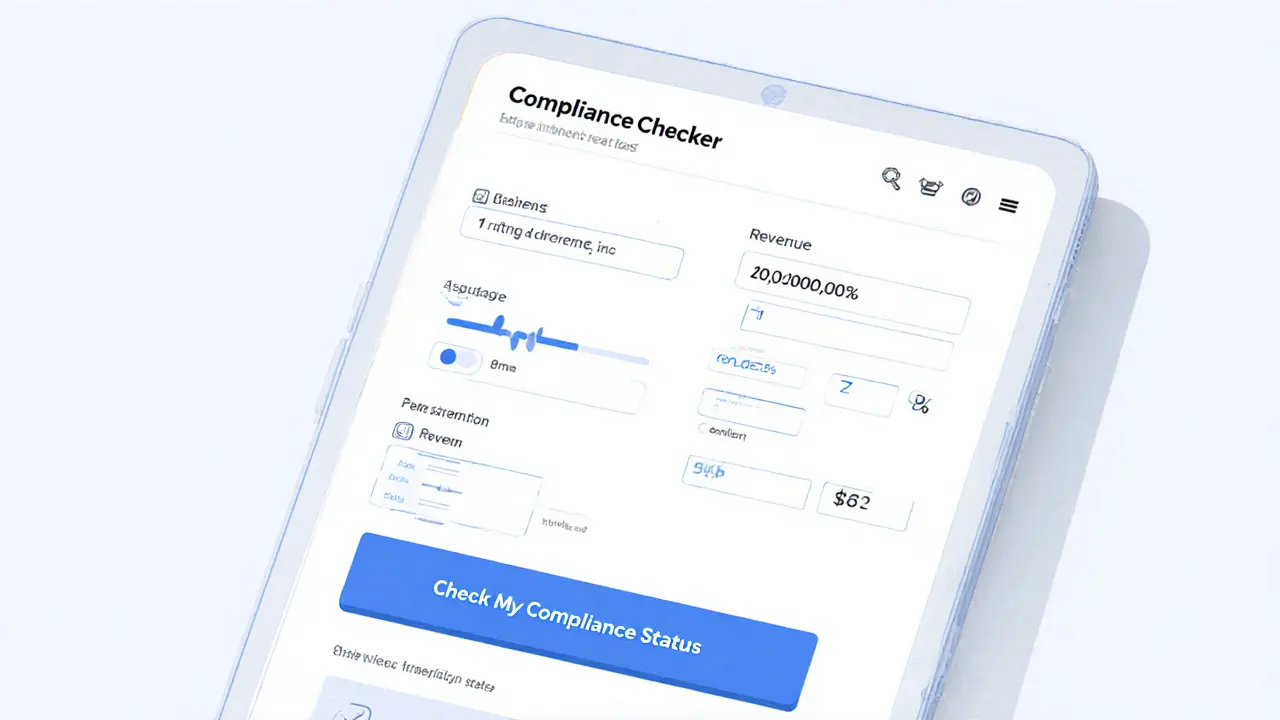Data Privacy Compliance in Crypto and Blockchain
When talking about Data Privacy Compliance, the set of rules and practices that ensure personal data is collected, stored, and processed legally and securely. Also known as DP Compliance, it forms the backbone of trustworthy crypto services, from exchanges to DeFi apps.
One of the biggest drivers of data privacy compliance is the GDPR, the European Union regulation that defines data protection standards for individuals. GDPR forces platforms to obtain clear consent, provide data‑access rights, and delete records on request. In practice, a crypto exchange that wants to operate in the EU must embed GDPR checks into its onboarding flow, otherwise it risks hefty fines and loss of reputation. Another core piece is KYC, the process of verifying a user’s identity to prevent fraud and illicit activity. KYC is not just a check‑box; it creates a direct link between personal data and compliance obligations. When a platform collects passports or driver’s licenses, it must store that data in encrypted form, limit access, and keep audit trails – all requirements that stem from data privacy compliance. Closely tied to KYC is AML, anti‑money‑laundering measures that monitor and report suspicious transactions. AML policies rely on accurate customer data, so any breach in data privacy can weaken the whole anti‑laundering framework. For instance, if an exchange leaks user information, it not only violates privacy law but also hampers its ability to trace illicit flows, inviting regulator scrutiny. Regulatory frameworks like the Digital Asset Business Act in Thailand or the experimental legal regime in Russia illustrate how data privacy compliance intersects with broader crypto regulation. These rules often require exchanges to align their data handling with local privacy statutes, meaning a one‑size‑fits‑all approach rarely works. Platforms must map each jurisdiction’s expectations, adjust consent mechanisms, and stay ready for audits. User data protection is more than a legal checkbox; it builds trust. When traders see that an exchange encrypts personal details, offers two‑factor authentication, and respects deletion requests, they are more likely to deposit funds and trade actively. That trust translates into higher liquidity, better order‑book depth, and more robust market health. Blockchain itself adds a twist to data privacy. Public ledgers are transparent by design, yet they can still store personal identifiers if developers are careless. Emerging solutions—zero‑knowledge proofs, selective disclosure, and off‑chain storage—help reconcile the need for transparency with privacy mandates. When a DeFi protocol uses zero‑knowledge proofs, it can prove a user meets KYC criteria without exposing the underlying identity data, thus satisfying both compliance and privacy goals. In short, data privacy compliance is the glue that holds together GDPR, KYC, AML, and the myriad crypto regulations that shape today's markets. Understanding how these pieces fit helps traders pick safer platforms and gives developers a roadmap for building compliant services.
Why It Matters for Traders and Platforms
Whether you are a retail investor checking the latest token airdrop or a professional trader moving large volumes, the quality of a platform’s data privacy compliance directly impacts your risk profile. Non‑compliant exchanges may face sudden shutdowns, frozen assets, or unexpected fees. Conversely, compliant services tend to offer clearer dispute‑resolution processes, faster withdrawals, and more reliable customer support. For developers, integrating privacy‑by‑design principles early saves time and money. Embedding GDPR‑style consent dialogs, encrypting KYC records on the back end, and logging AML checks in immutable audit trails are best practices that future‑proof a product against regulatory shifts. The collection below showcases real‑world examples: from guides on how China’s fiat‑to‑crypto rules handle user data, to reviews of Binance Smart Chain DEXes that discuss security and privacy measures, to deep dives on Thailand’s SEC crypto regulations. Each article highlights a facet of data privacy compliance in action, helping you see how theory turns into practice. Stay tuned as you explore the posts—you’ll see concrete steps, compliance checklists, and actionable tips that you can apply today.
2025 Privacy Protocol Regulations: U.S. State Laws & Global Framework
A detailed guide to the 2025 privacy protocol regulations, covering eight new U.S. state laws, global frameworks like India's DPDPA, compliance steps, common pitfalls, and a FAQ.
VIEW MORE
